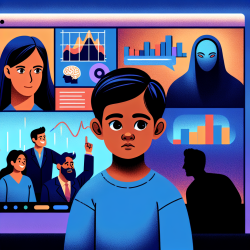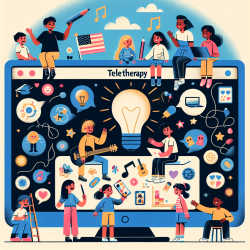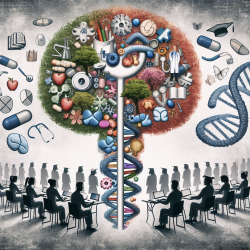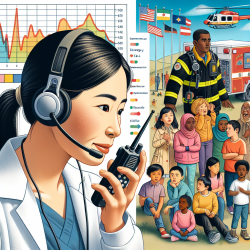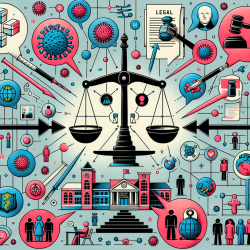Introduction
The landscape of terrorism in Pakistan offers a complex interplay of psychosocial factors that can provide valuable insights for speech-language pathologists and other therapy practitioners. The research article "Terrorism in Pakistan: the psychosocial context and why it matters" by Nizami et al. (2018) delves into these intricacies, offering a perspective that can enhance therapeutic practices, especially in environments affected by trauma and conflict. This blog explores how the findings from this study can be applied to improve therapy outcomes for children.
Understanding the Psychosocial Context
The study highlights the importance of understanding the psychosocial determinants of terrorism, which include historical, social, and psychological factors. These insights can be crucial for practitioners working with children who have experienced trauma or live in conflict zones. By acknowledging the complex background of these children, therapists can tailor their approaches to address specific emotional and psychological needs.
Key Insights for Practitioners
- Historical and Social Awareness: Understanding the historical context of a region can help practitioners develop empathy and build rapport with their clients. For instance, recognizing the impact of colonial history and socio-political instability can inform more culturally sensitive therapy practices.
- Addressing Psychological Influences: The study emphasizes that terrorist activities often stem from a complex process of cognitive accommodation. Similarly, children exposed to violence may develop maladaptive thought patterns. Practitioners can focus on cognitive-behavioral strategies to help reframe these thoughts.
- Early Intervention: The research suggests that early intervention can prevent the development of severe psychological issues. For speech-language pathologists, this means identifying and addressing communication disorders early, which can mitigate the impact of trauma on language development.
Encouraging Further Research
While the study provides a foundational understanding, it also opens the door for further research into how these psychosocial factors specifically affect language and communication in children. Practitioners are encouraged to explore these areas to develop evidence-based interventions that can be integrated into their practice.
Conclusion
By integrating the insights from the study "Terrorism in Pakistan: the psychosocial context and why it matters," practitioners can enhance their therapeutic approaches, leading to better outcomes for children affected by trauma and conflict. Understanding the broader psychosocial context allows for more personalized and effective therapy.
To read the original research paper, please follow this link: Terrorism in Pakistan: the psychosocial context and why it matters.
